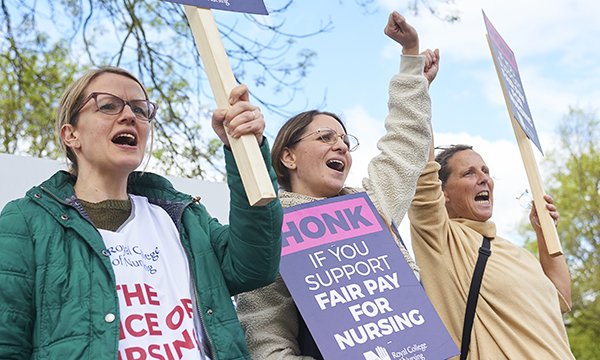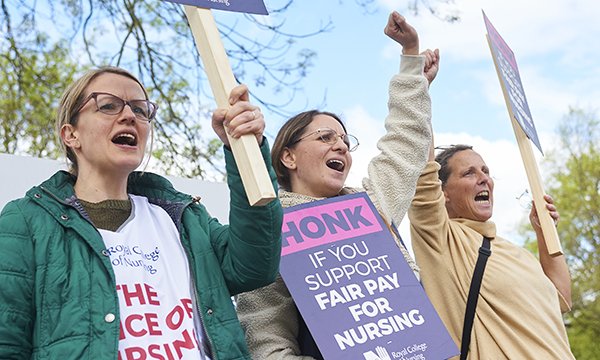NHS pay: ‘decent’ award key to NHS recruiting and retaining staff

Union urges government to start pay talks to avoid repeat of NHS strikes and address the ‘staffing emergency’ in England’s NHS

Nurses and other staff in England’s NHS need a proper pay rise if there is to be any hope of filling vacancies and preventing waiting lists from spiralling, a health union said.
Unison has called on health and social care secretary Victoria Atkins to open pay talks for 2024-25 as a matter of urgency, to avoid a repeat of widespread strike action seen in the NHS in 2022 and 2023 that included nurses for the first time in NHS history.
NHS pay review body ‘not fit for purpose’
The union wrote to Ms Atkins setting out its case for sustained investment in the workforce and notified the NHS Pay Review Body (RB) of its decision not to submit evidence to it, adding the RB process ‘takes too long, and is neither sufficiently independent, nor fit for purpose’.
‘Decent wage increases this year won’t solve all the health service’s problems, but they could help keep experienced employees in their jobs and attract new recruits’
Helga Pile, acting head of health, Unison
Ms Atkins has been criticised for triggering the process for the 2024-25 pay award late, which will result in a delay to nurses receiving any pay rise agreed.
Both the RCN and Unison have called for the RB process to be scrapped in favour of direct talks with government, but this has been dismissed by the Department of Health and Social Care (DHSC)
Pay key to addressing NHS staffing emergency
Unison said pay remains a top concern for its members. A recent survey carried out by the union, which had 40,000 responses from NHS staff in England, found 38% were unable to concentrate at work because they were worrying about their finances and 35% said they had to take on extra shifts due to high living costs.
Unison acting head of health Helga Pile said: ‘There’s a staffing emergency across every part of the NHS in England. There are simply too few health workers to meet increasing demand. That leaves staff stretched ever more thinly as they try desperately to deliver quality care to patients.
‘As it stands, NHS staff on the lowest pay band will be earning just a penny an hour above the minimum wage when it rises in April and their salaries are well short of the real living wage.
‘If the government fails to put pay right, the picture looks bleak for the NHS and everyone needing its care. Decent wage increases this year won’t solve all the health service’s problems, but they could help keep experienced employees in their jobs and attract new recruits.’
In other news

